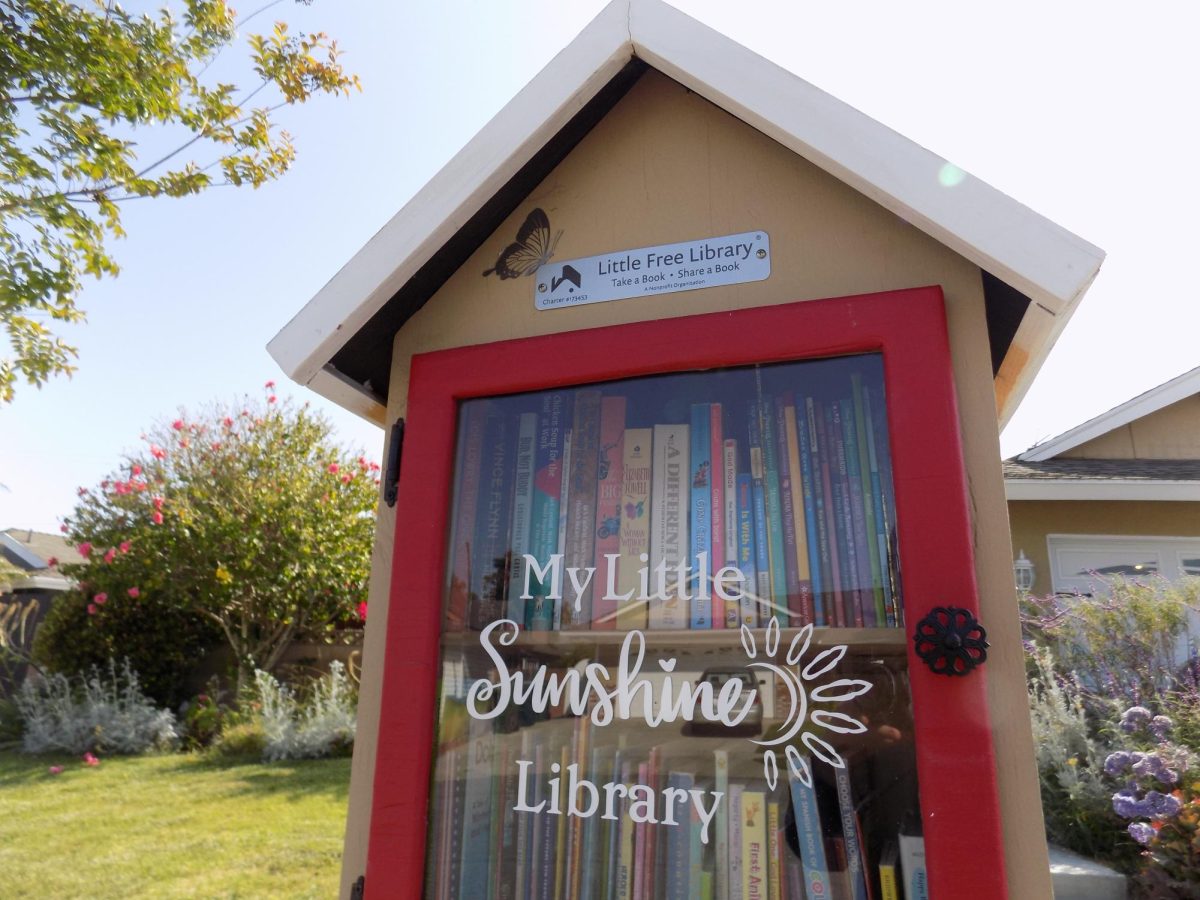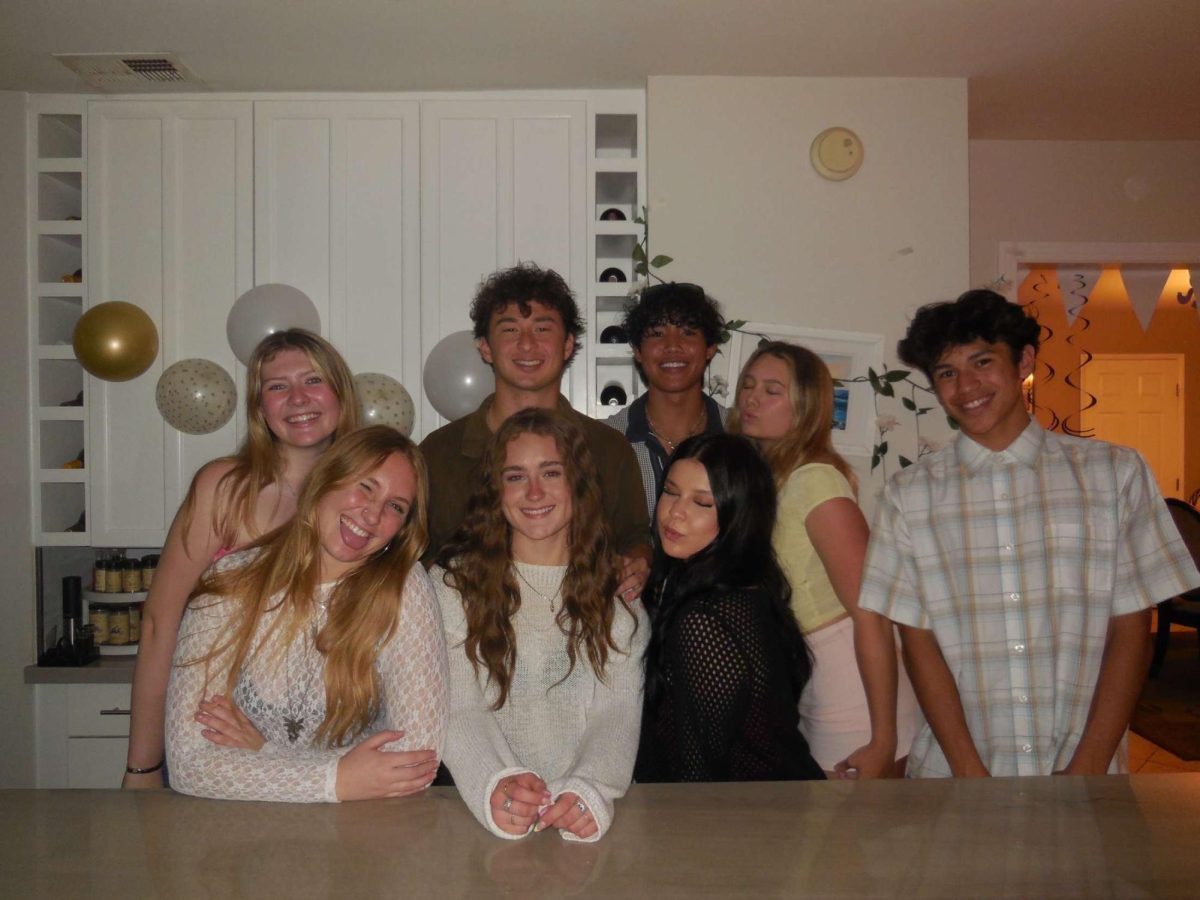Each year students end up buying a few books for their English classes they will likely never read again after the year comes to a close. While some teachers offer extra credit for turning in these books to be used for next year’s class, not all of them do.
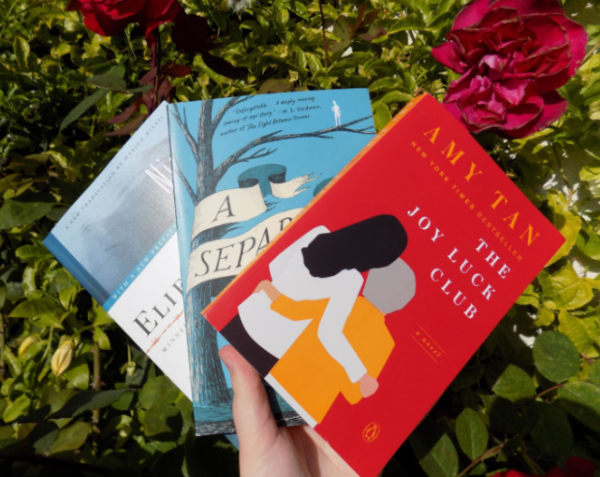
Donating these books to Little Free Library, a non-profit free book exchange organization intent on providing everyone with easy access to books, maybe the solution to finding a new home for school books.
“This year, I bought four or five books and we [are] only reading two of them,” said Huntington Beach High School sophomore Paul Young.
But donations do not have to stop at class books. Schools can donate unwanted personal books to Little Free Libraries as part of their extra credit assignments, as many students make a mad scramble for these points at the end of each semester.
“It would be very clever to donate the books I [will not] be reading this year, that way there are a lot fewer books I have to deal with and others will get easy access to those books,” said Young.
By placing their books in one of these libraries, students can help alleviate illiteracy by directly supporting their community’s development and proficiency in reading. Illiteracy levels are more pressing than ever with a reported 36 million adults in the United States who do not read above a third-grade level according to Regis College.
Many children, teens, and adults are at an educational disadvantage if their school has a lack of funding or their family does not have enough affordable access books.
At the end of the day, these tiny libraries are kept running by the community around them who donate, support, and cherish them. By encouraging their students to donate, schools can push school ages to continue to “Take a Book, Leave a Book,” the organization’s slogan.
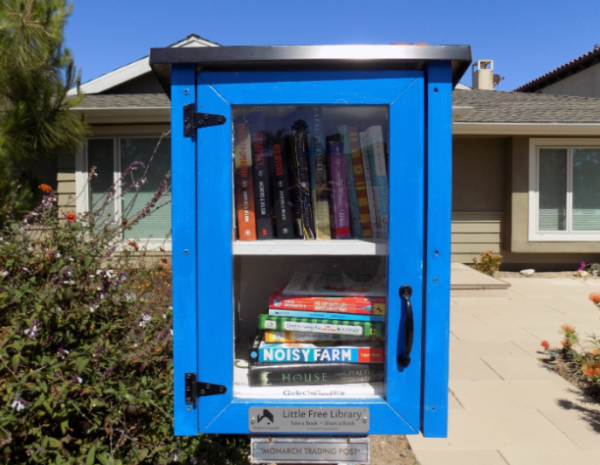
“The communities that run the Little Free Libraries are always nice and I often build a friendship with the owners,” said Huntington Beach High School freshman, Eli Harrison.
Indeed, the generous nature of Little Free Libraries is attractive. While curating an environment of support for those who do not have adequate access to books, they also cultivate a supportive and cheerful environment for everyone interested.
This is an environment schools can benefit from too, not just communities. Whether unintentional or not, many schools have disconnected their students from the pleasure of reading through a curriculum intent on analyzing line after line of text.
“I have noticed nowadays that more people really dislike reading and I want to change that. I think the Little Free libraries could help that cause because the books are free and the Little Libraries generally consist of many different genres,” said Harrison.
If these institutions decided to create their own Little Free for their campus, they would be prompting their scholars to reconnect with the joys of literature. With an abundant chance for a collection of unique and inviting books reflective of school-wide book tastes, a campus Little Free Library should be the answer to circumventing a student’s agony over reading.
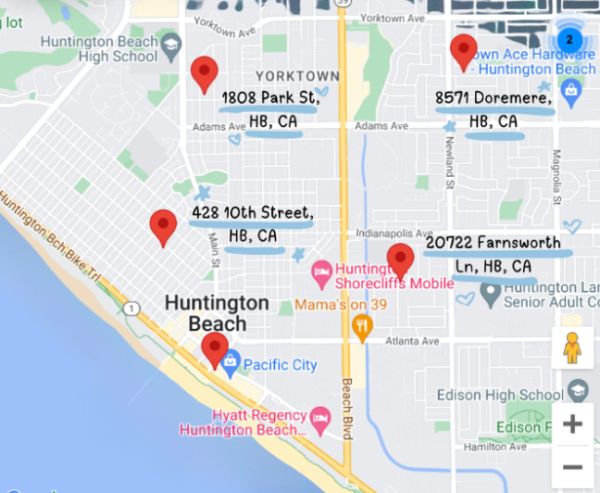
“My little sister hated reading because she had a very hard time with it and she couldn’t find books she enjoyed. I took her to a Little Free Library one day and she found some books she liked [and] now she loves reading,” said Harrison.
This implementation would also give students who have limited access to books outside of school a chance to fulfill their need for reading as a form of comfort, discovery, escapism, or complete fascination.
At their core, Little Free Libraries encourage people to share the marvels they discover in books with others. If schools choose to embrace this vision, they will foster growth, curiosity, and acceptance on their campuses.


